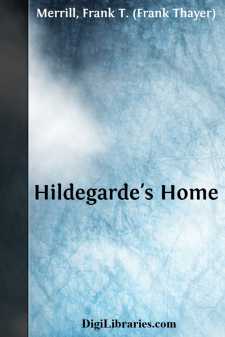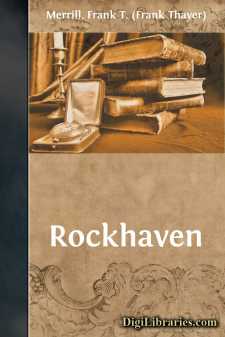Categories
- Antiques & Collectibles 13
- Architecture 36
- Art 48
- Bibles 22
- Biography & Autobiography 813
- Body, Mind & Spirit 142
- Business & Economics 28
- Children's Books 17
- Children's Fiction 14
- Computers 4
- Cooking 94
- Crafts & Hobbies 4
- Drama 346
- Education 46
- Family & Relationships 57
- Fiction 11829
- Games 19
- Gardening 17
- Health & Fitness 34
- History 1377
- House & Home 1
- Humor 147
- Juvenile Fiction 1873
- Juvenile Nonfiction 202
- Language Arts & Disciplines 88
- Law 16
- Literary Collections 686
- Literary Criticism 179
- Mathematics 13
- Medical 41
- Music 40
- Nature 179
- Non-Classifiable 1768
- Performing Arts 7
- Periodicals 1453
- Philosophy 64
- Photography 2
- Poetry 896
- Political Science 203
- Psychology 42
- Reference 154
- Religion 513
- Science 126
- Self-Help 84
- Social Science 81
- Sports & Recreation 34
- Study Aids 3
- Technology & Engineering 59
- Transportation 23
- Travel 463
- True Crime 29
Hildegarde's Home
Description:
Excerpt
CHAPTER I.
THE HOME ITSELF.Itwas a pleasant place. The house was a large, low, old-fashioned one, with the modern addition of a deep, wide verandah running across its front. Before it was a circular sweep of lawn, fringed with trees; beside it stood a few noble elms, which bent lovingly above the gambrel roof. There were some flower-beds, rather neglected-looking, under the south windows, and there was a kitchen-garden behind the house. This was all that Hildegarde Grahame had seen so far of her new home, for she had only justarrived. She stood now on the verandah, looking about her with keen, inquiring eyes, a tall, graceful girl, very erect, with a certain proud carriage of the head. Her dress of black and white shepherd's plaid was very simple, but it fitted to perfection, and there was a decided "air" to her little black felt hat.Hildegarde's father had died about six months before the time our story opens. He had been very wealthy, but many of his investments had shrunk in value, and the failure of a bank whose cashier had proved dishonest entailed heavy losses upon him; so that, after his death, it was found that the sum remaining for his widow and only child, after all debts were paid, was no very large one. They would have enough to live on, and to live comfortably; but the "big luxuries," as Hildegarde called them, the horses and carriages, the great New York house with its splendid furniture and troops of servants, must go; and go they did, without loss of time. Perhaps neither Hildegarde nor her mother regretted these things much. Mrs. Grahame had been for years an indefatigable worker, giving most of her time to charities; she knew that she should never rest so long as she lived in New York. Hildegarde had been much in the country during the past two years, had learned to love it greatly, and found city life too "cabined, cribbed, confined," to suit her present taste. The dear father had always preferred to live in town; but now that he was gone, they were both glad to go away from the great, bustling, noisy, splendid place. So, when Mrs. Grahame's lawyer told her that an aged relative, who had lately died, had left his country house as a legacy to her, both she and Hildegarde said at once, "Let us go and live there!"
Accordingly, here they were! or to speak more accurately, here Hildegarde was, for she and auntie (auntie was the black cook; she had been Mrs. Grahame's nurse, and had been cook ever since Hildegarde was a baby) had come by an early train, and were to have everything as comfortable as might be by the time Mrs. Grahame and the little housemaid, who had stayed to help her pack the last trifles, should arrive in the afternoon.
It was so pleasant on the wide verandah, with the great elms nodding over it, that Hildegarde lingered, until a mellow "Miss Hildy, chile! you comin'?" summoned her in-doors. Auntie had already put on her white jacket and apron, without which she never considered herself dressed, and her muslin turban looked like a snow-drift on an ebony statue....









